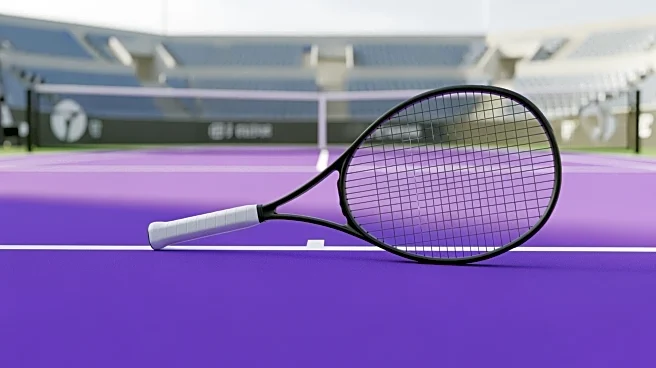What's Happening?
Venus Williams, a 45-year-old tennis legend with seven Grand Slam singles titles, has been granted a wildcard entry for the Auckland Classic scheduled for January. Williams made her return to competitive
tennis in July after a 16-month hiatus, marking her comeback with a victory over Peyton Stearns at the Washington Open. This win made her the second-oldest woman to secure a WTA Tour-level singles match victory. Following this, she participated in the US Open, where she delivered a commendable performance against Czech 11th seed Karolina Muchova, despite losing in the first round. The Auckland Classic, which Williams won in 2015, will be held from January 5-11, preceding the Australian Open starting on January 18.
Why It's Important?
Venus Williams' participation in the Auckland Classic is significant for several reasons. Her return to the court after a lengthy absence highlights her enduring influence and passion for tennis, serving as an inspiration to both current and aspiring players. Williams' presence at the tournament is expected to draw considerable attention, potentially boosting viewership and attendance, which can have positive economic implications for the event. Additionally, her involvement underscores the importance of veteran athletes in maintaining the sport's popularity and encouraging diversity in age representation within professional tennis.
What's Next?
As Venus Williams prepares for the Auckland Classic, tennis enthusiasts and analysts will be keenly observing her performance, which could set the tone for her participation in the upcoming Australian Open. Her performance in Auckland may influence her seeding and expectations for the Grand Slam event. Furthermore, Williams' participation could inspire discussions on the longevity and career management of athletes in professional sports, particularly in tennis, where physical demands are high.
Beyond the Headlines
Williams' return to competitive tennis also raises broader questions about the evolving dynamics of women's sports, including the role of veteran athletes in shaping the future of the game. Her continued presence in high-profile tournaments may encourage more inclusive policies regarding age and experience in sports, potentially influencing how sports organizations approach athlete development and career longevity.









